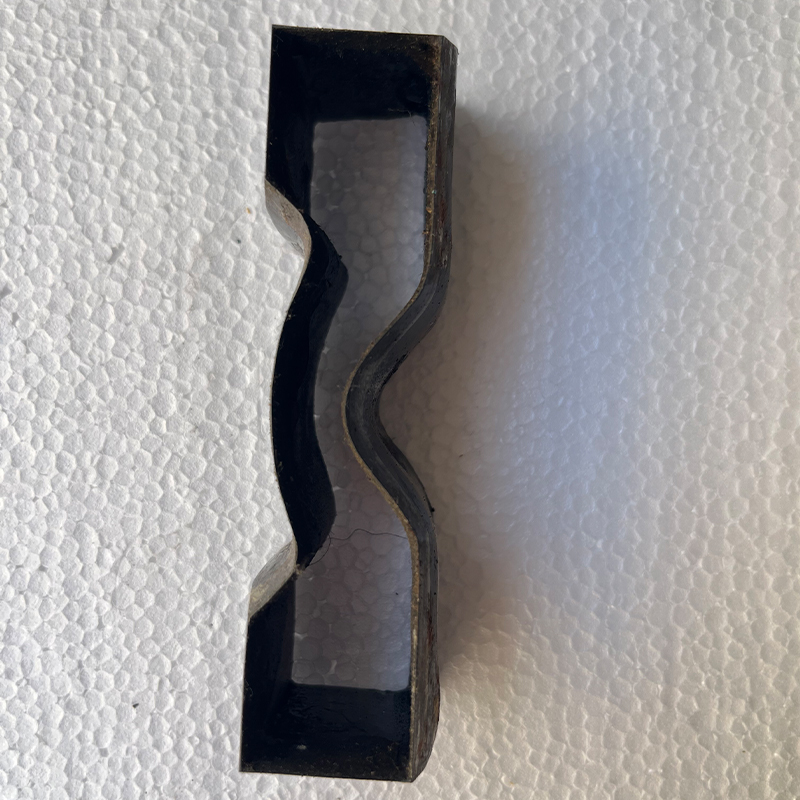tensile tests machine company
Exploring the Essential Role of Tensile Test Machines in Material Testing
In the realm of materials science and engineering, the strength and durability of materials are paramount. Tensile test machines are indispensable tools that provide critical data on the mechanical properties of materials. By measuring how materials react under tension, these machines enable engineers and researchers to understand their behavior and suitability for various applications.
What is a Tensile Test Machine?
A tensile test machine, also known as a universal testing machine (UTM), is designed to apply uniaxial tension to a sample material until it deforms or breaks. This process involves pulling the material at a controlled rate while measuring the force applied and the corresponding elongation of the sample. The key outputs of this test include stress-strain curves, ultimate tensile strength, yield strength, elongation at break, and reduction of area.
The Importance of Tensile Testing
1. Material Characterization Tensile testing reveals critical characteristics of materials, such as elasticity, yield point, and plasticity. Understanding these properties is vital for selecting appropriate materials for construction, manufacturing, and other applications.
2. Quality Control Manufacturers use tensile test machines to ensure that their materials meet the required specifications. By performing routine tensile tests on raw materials and finished products, companies can mitigate the risk of failures in their structures or products.
3. Research and Development In the development of new materials, tensile testing is a fundamental step. Researchers can analyze how modifications in composition or processing affect the tensile properties, allowing for innovation in product design and materials engineering.
4. Safety Assurance In industries like aerospace and automotive, where material failure can have catastrophic consequences, tensile testing is essential for safety. By rigorously testing materials, engineers ensure that components can withstand operational stresses and environmental factors.
The Process of Tensile Testing
The tensile testing process involves several steps
tensile tests machine company

- Sample Preparation Specimens must be prepared according to standardized dimensions and conditions, ensuring that results are comparable and reliable. Common standards include ASTM E8 for metallic materials and ASTM D638 for plastics.
- Testing Procedure The specimen is placed in the machine's grips, and the test begins. The tensile test machine applies a continuous load, and as the material stretches, the machine records the force and elongation.
- Data Analysis Once the specimen fails, the data collected generates a stress-strain curve, which visualizes the relationship between stress (force per unit area) and strain (deformation). Analysts can then calculate important metrics such as the modulus of elasticity, tensile strength, and elongation percentage.
Advancements in Tensile Testing Technology
Modern tensile test machines feature advanced technologies that enhance accuracy and efficiency. Digital displays offer real-time data monitoring, while software can analyze results and predict material behavior under various conditions. Moreover, automation in testing machines allows for higher throughput and reduced human error, making tensile testing more reliable than ever.
Choosing the Right Tensile Test Machine
Selecting the appropriate tensile test machine depends on several factors, including
- Load Capacity Ensure the machine can handle the maximum expected load for the materials being tested. - Type of Material Different machines may be better suited for metals, polymers, composites, or rubber. - Testing Standards Consider machines that comply with industry standards for accuracy and reliability. - Additional Features Look for machines equipped with data acquisition systems, extensometers, and environmental chambers for testing materials under various conditions.
Conclusion
In conclusion, tensile test machines play an essential role in materials testing by providing invaluable insights into material behavior under stress. As technology evolves, these machines continue to enhance our understanding of material properties, leading to innovative applications across diverse industries. From structural safety to product development, the significance of tensile testing cannot be overstated. As we move towards an increasingly material-dependent future, the importance of reliable tensile test machines will only grow, underscoring their integral role in engineering and materials science.
-
Why the Conductor Resistance Constant Temperature Measurement Machine Redefines Precision
NewsJun.20,2025
-
Reliable Testing Starts Here: Why the High Insulation Resistance Measuring Instrument Is a Must-Have
NewsJun.20,2025
-
Flexible Cable Flexing Test Equipment: The Precision Standard for Cable Durability and Performance Testing
NewsJun.20,2025
-
Digital Measurement Projector: Precision Visualization for Modern Manufacturing
NewsJun.20,2025
-
Computer Control Electronic Tensile Tester: Precision and Power for the Modern Metal Industry
NewsJun.20,2025
-
Cable Spark Tester: Your Ultimate Insulation Assurance for Wire and Cable Testing
NewsJun.20,2025
 Copyright © 2025 Hebei Fangyuan Instrument & Equipment Co.,Ltd. All Rights Reserved. Sitemap | Privacy Policy
Copyright © 2025 Hebei Fangyuan Instrument & Equipment Co.,Ltd. All Rights Reserved. Sitemap | Privacy Policy
